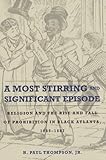Support H-Net | Buy Books Here | Help Support the NBN and NBN en Español on Patreon | Visit New Books Network en Español!
- African Studies
- African American Studies
- American Politics
- American Studies
- American South
- American West
- Asian American Studies
- Australian and New Zealand Studies
- British Studies
- Canadian Studies
- Caribbean Studies
- Central Asian Studies
- Chinese Studies
- East Asian Studies
- Eastern European Studies
- European Politics
- French Studies
- German Studies
- Iberian Studies
- India Studies
- Indian Ocean World
- Iranian Studies
- Irish Studies
- Israel Studies
- Italian Studies
- Japanese Studies
- Korean Studies
- Latino Studies
- Latin American Studies
- Mexican Studies
- Middle Eastern Studies
- Native American Studies
- Pacific Studies
- Polish Studies
- Russian and Eurasian Studies
- Southeast Asian Studies
- South Asian Studies
- Turkish Studies
- Ukrainian Studies
- Western European Studies
- World Affairs
- Animal Studies
- Anthropology
- Archaeology
- Business, Management, and Marketing
- Media
- Critical Theory
- Disability Studies
- Drugs, Addiction and Recovery
- Education
- Economics
- Finance
- Geography
- Gender Studies
- Genocide Studies
- Higher Education
- Human Rights
- Journalism
- Language
- Law
- LGBTQ+ Studies
- National Security
- Philosophy
- Policing, Incarceration, and Reform
- Political Science
- Politics & Polemics
- Public Policy
- Sex, Sexuality, and Sex Work
- Sociology
- Sound Studies
- Sports
- Urban Studies

Feb 16, 2012
Keepin' It Hushed
The Barbershop and African American Hush Harbor Rhetoric
Summary
Vorris Nunley's Keepin it Hushed: The Barbershop and African American Hush Harbor Rhetoric (Wayne State University Press, 2011), uses the black barbershop as a trope to discuss black talk within literary, cultural, and political sites. Nunley's brilliant analysis of Aaron McGruder's cartoon Boondocks, the well-known play Ceremonies in Dark Old Men by Lonne Elder III, and Barack Obama's Race Speech, substantiates his bold claim that "to not know [African American Hush Harbor Rhetoric] is to not know Black people, their subjectivities, their perspectives" (3).
By reading this book you will understand just how African American Hush Harbor Rhetoric is specific to black people, generated by them, and speaks to their worldviews and experiences--even when black talk is directed to white people. As I understand it, Hush Harbor Rhetoric is often undervalued and grossly misunderstood in the mainstream because whites sometimes prefer to hear what Nunley calls the African American Podium-Auction Block Rhetoric, racially domesticated talk that both caters to and comforts white sensibilities and concerns. While hush harbor rhetoric is criticized sometimes for not being as palatable as podium-auction block rhetoric, Nunley's book underscores why "palatable" is in the ears of the beholder. He encourages us to stop finding unnecessary fault with black people's philosophical tongues and start listening more astutely to the type of talk they express, particularly in that corner barbershop on the West Side of Chicago.
























































































